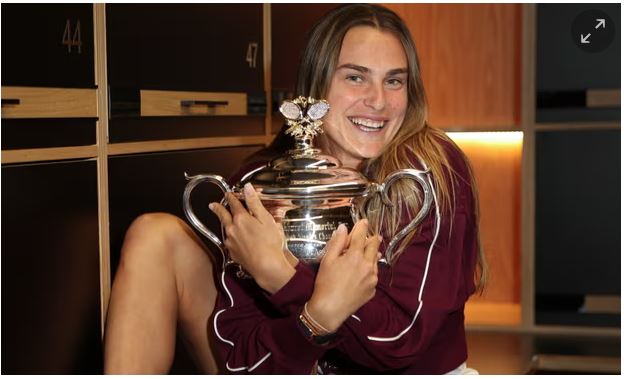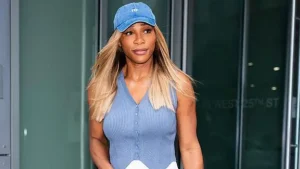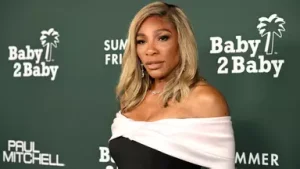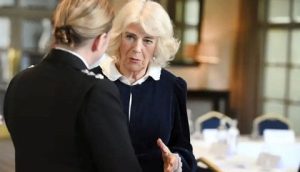
The Belarusian defended her title with ease in Melbourne this year
Aryna Sabalenka says she is determined to continue winning grand slam titles and adding to her count after she dismantled Zheng Qinwen, the 12th seed, 6-3, 6-2 in 76 minutes to win the Australian Open for a second time.
“It’s been in my mind that I didn’t want to be that player who win it and then disappeared,” said Sabalenka, the second seed. “I just wanted to show that I’m able to be consistently there and I’m able to win another one. I really hope that more, more than two right now, but for me was really important. That’s why, no matter what the result, like, win or lose, we are always working hard, we always looking for things to improve in my game.”
She closed off an incredibly dominant fortnight here by defending her maiden grand slam title. Sabalenka did not drop a setand the 31 games she conceded are the second fewest in the 21st century. In her past six grand slam tournaments, Sabalenka has finished with two titles, one final and three semi-finals. Although she retains the No 2 spot, Sabalenka will likely continue to battle with Iga Swiatek for the No 1 ranking this year.
Despite enjoying an incredible 12 months, rising to No 1 for the first time, Sabalenka also suffered numerous difficult losses. She said that after her attempts to try and follow up her first grand slam title, she now understands why the joy of winning a grand slam title doesn’t fade. “I felt after last year it’s going to help me to be more free and don’t care about things,” she said. “But not really. You still feel the same. You still want it badly and you still working very hard for it, and you still have to show up and fight for it and show your best level.
“Before I was watching all these champions crying after each slam, I was, like: ‘Come on, you’ve done it, like, 15 times. Why are you still crying?’ Right now, I didn’t even get to that point, but I feel like I understand why they were still crying. Because every time, the same pressure, the same expectations. You want it same way. So it’s always emotional.”
As Aryna Sabalenka celebrated a monumental achievement, Zheng left her first grand slam final disappointed by her performance and her inability to make it a more competitive match. The 21-year-old had never previously been past the quarter-final stage of a slam. Against one of the best players in the world in full flow, Zheng was overpowered and outplayed.
“I can learn more with the loss and then I just hope next time I can come back as a better player,” she said.






